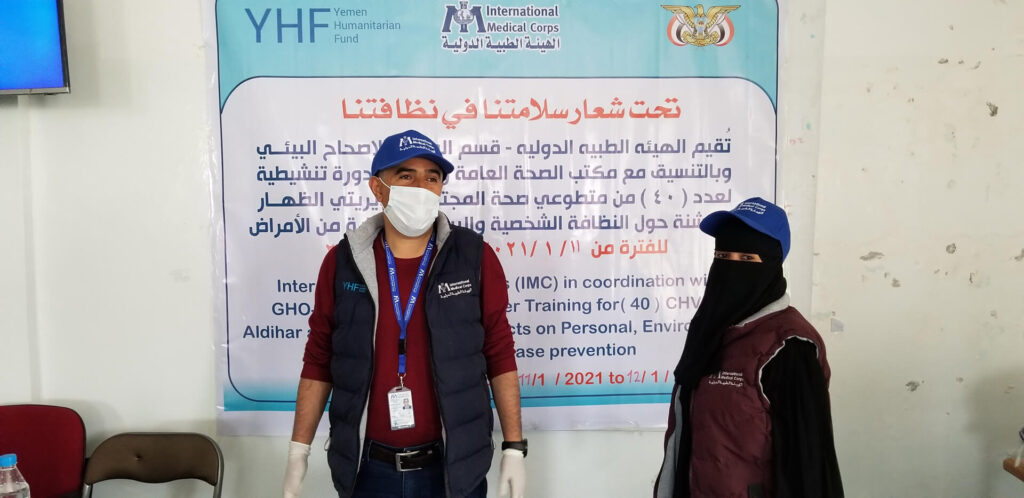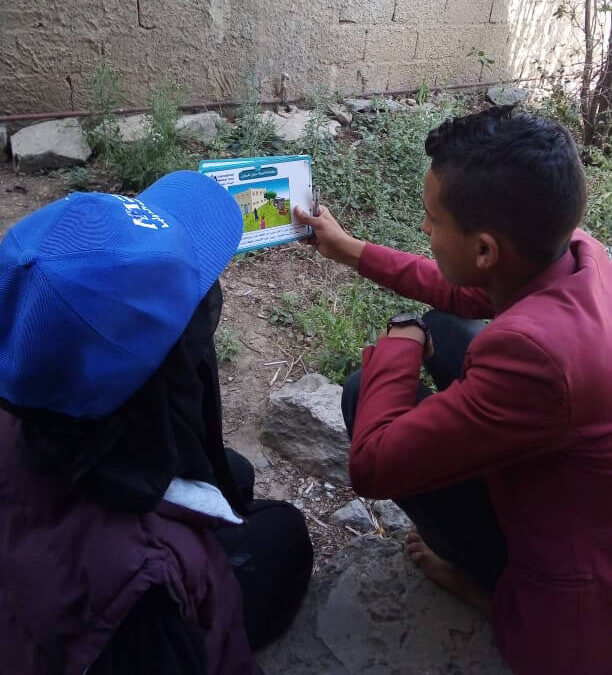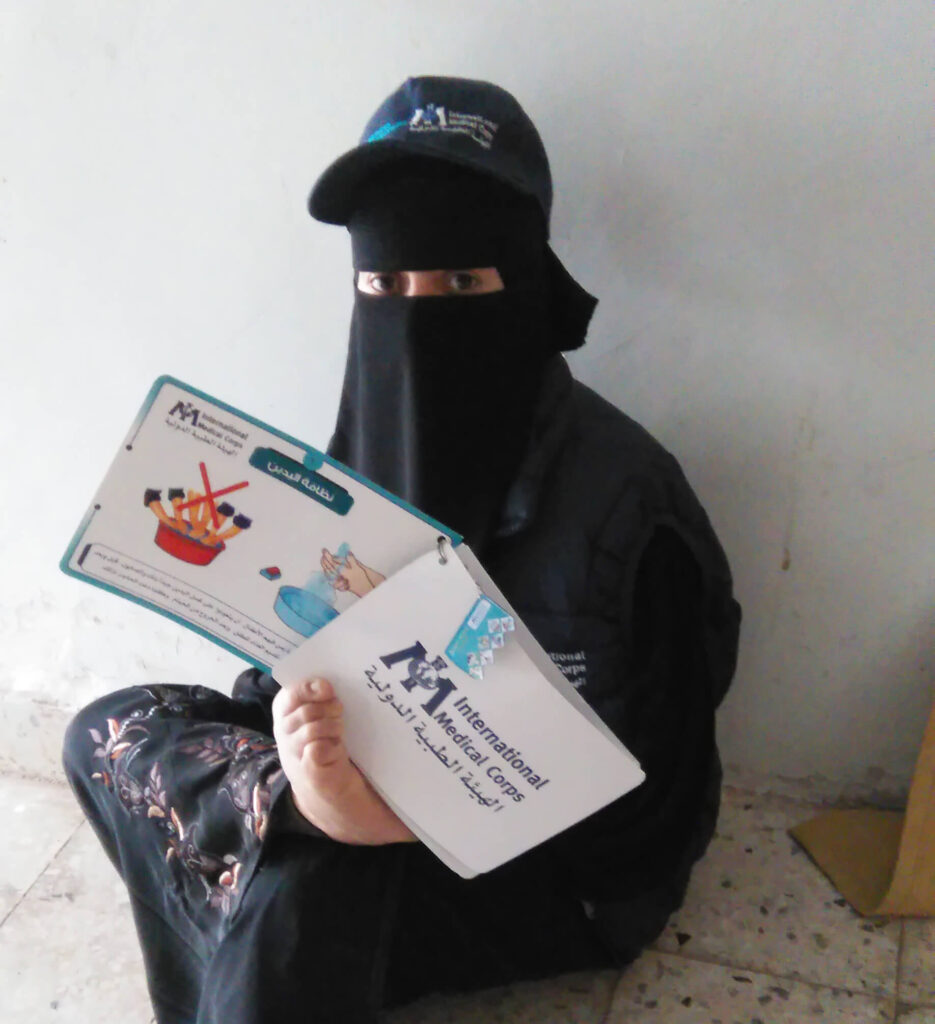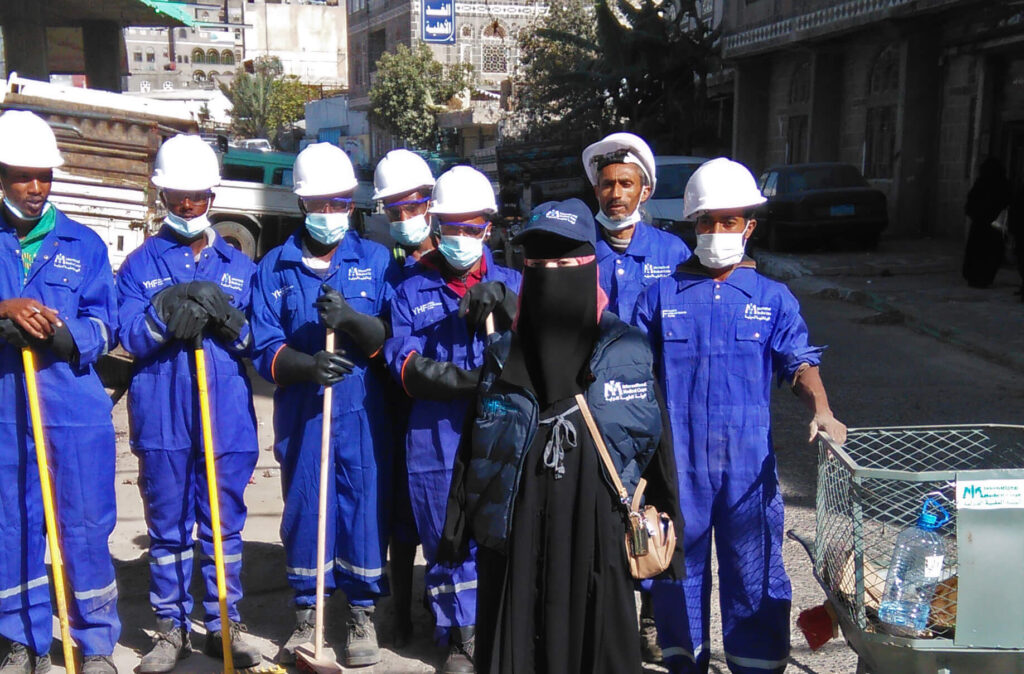Editor’s Note: International Medical Corps’ Yemen Blog presents a rare view of life in Yemen, chronicled by our first responders as they battle one of the world’s worst humanitarian disasters—one fueled by poverty, hunger, disease and a seemingly endless war, now in its eighth year.
The entry below is the first written by Dr. Esmail Al-Sabahi, our Senior Hygiene Promotion Officer, who joined International Medical Corps in 2018 and is based in Ibb, Yemen’s fourth-largest city, where he was born and raised. He completed his university studies in Syria and Malaysia, where he earned a PhD in Environmental Science, specializing in water quality and contamination. He writes below about one of our many community health volunteers—essential members of our country teams who collectively play an invaluable role in strengthening the lifesaving work we do in Yemen and more than 30 other nations around the world.
Our community health volunteers (CHVs) in Yemen contribute immensely to the humanitarian care we provide to tens of thousands of Yemenis each year whose lives have been turned upside down by war and displacement. The volunteers’ ability to use their access and local knowledge to help us mobilize residents in efforts to protect them from public health risks—whether they live in centuries old urban neighborhoods, remote villages or temporary displacement camps—make them the backbone of our water, sanitation and hygiene programs. This is especially important in Yemen, which in recent years has suffered major outbreaks of communicable disease, including cholera and diphtheria.
I’ve also learned that those who serve as CHVs often find that the experience helps them as well. The story of a shy young woman named Rezk Allah, whom we selected twice to volunteer for us in her hometown of Ibb, stands as an example of just how life-changing the work can be for the volunteers themselves.
Rezk Allah first started working for us in 2020 as a volunteer in Almashannah district, a suburban area in the southern outskirts of Ibb. But I first met her the year before that, when I was holding a training session for newly recruited volunteers selected to help on a United Nations project in an area nearby. During a break in the training, she sat down next to me and introduced herself. We spoke for a while until, suddenly, her phone rang inside her bag. She asked me to help her find the phone and give it to her to answer. It was only then that I realized she had no hands.

I was surprised, but she smiled and explained that she used her feet to write and eat. When I asked her why she was at the hotel, she told me that she was waiting for a friend who was attending the training. She asked about the work that International Medical Corps was doing in the area, so I explained our programs there. When I was finished speaking, she said she had a very important question to ask me: “Would International Medical Corps accept me—even with my disability—to work as a community health volunteer?” I assured her that we would welcome her as a potential volunteer if she were interested. At that point we were interrupted, and our conversation ended.
It was about a year later when we received UN funding to deploy CHVs in two areas of Ibb city. I decided to call Rezk Allah immediately, to invite her to join the team as a volunteer. She accepted two days later.
In late 2020, we held a three-day training session for volunteers, including Rezk Allah. The session was extensive, covering prevention of acute watery diarrhea and cholera, the importance of handwashing at critical times and how to safely dispose of excreta. It also covered personal, domestic and environmental hygiene, such as management of liquid and solid waste at the household level. Finally, we covered water treatment, water-chain management, menstrual and food hygiene, and general measures for preventing communicable diseases. Throughout the training, Rezk Allah was attentive and engaged.

Afterward, the volunteers began conducting their own hygiene promotion sessions. Rezk Allah also started doing this for her family and the broader community, including holding sessions at schools and clinics in her catchment area. She regularly sent reports and photos to her supervisor, who was pleased with her hard work.
In 2021, we again received funding to deploy community health volunteers in the same area of Ibb, and once again invited Rezk Allh to join the team as a volunteer. However, this time I took it a step further. I introduced her to the newly recruited group, explaining to them her excellent work during the previous year. Then I suggested that they should look to her as a role model of how to conduct their work.

She was very pleased about that and told me later that the responsibilities of her work the previous year had given her the confidence to shed her shyness. “I’m a different girl, now,” she said. “I went everywhere to carry out these important hygiene promotion sessions. I could see that people accepted and respected me. They even encouraged me. They listened to my awareness sessions. I felt comfortable.”
Her carefully-kept field reports told us that she had reached 550 adults and some 900 children during her hygiene promotion sessions. I could tell she was proud of her accomplishment. But then, so am I.
View next blog:
Waiving Costs and Restoring Hope: Fighting Cancer and other Non-Communicable Disease for No Charge
